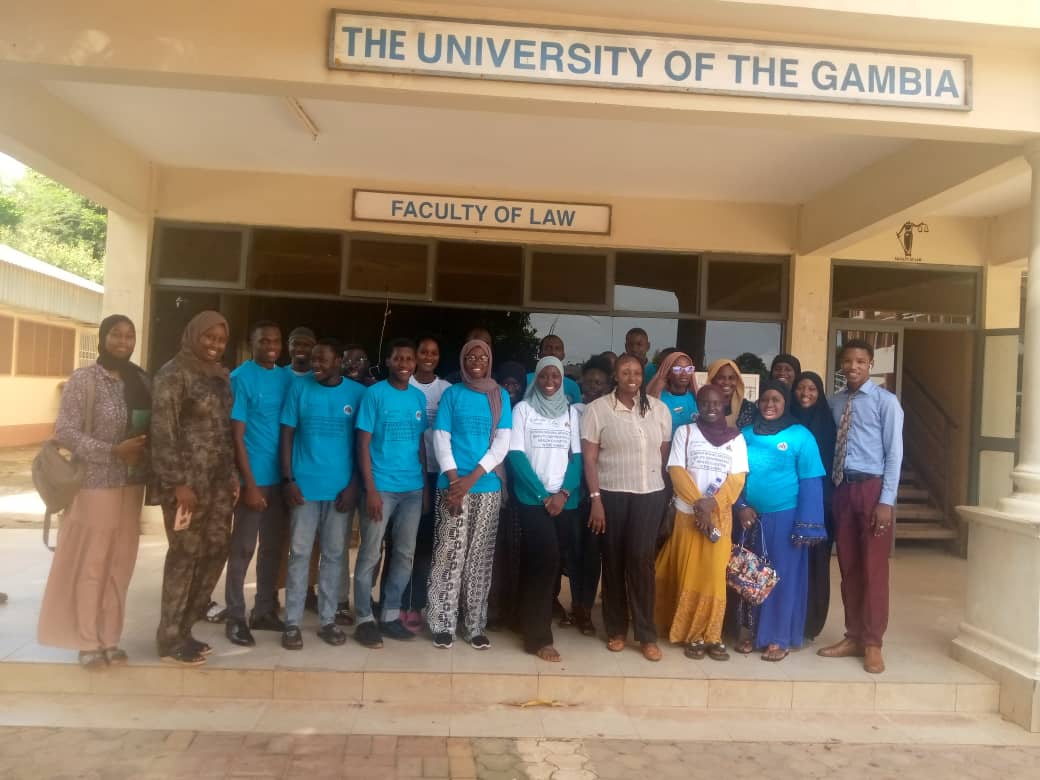By Yunus S Saliu
Reaching out to everyone who matters at different levels in its crusade of strengthening access to quality comprehensive health education in the Gambia for in and out-of-school adolescents, the CHE team of the Curriculum Research Evaluation and Development Directorate (CREDD) of the Ministry of Basic and Secondary Education (MoBSE), on Wednesday, 6th September shared its midline research findings with the students of the University of The Gambia.
The dissemination of the CHE Midline Research Findings was held at the Faculty of Law of the UTG at MDI Road, Kanifing.
Standing in for Momodou Jeng, Director of the CREDD, at the opening of the forum, Mr Hamadi Michael Secka welcomed the students to the forum and encouraged them to listen attentively to the presentations.
Talking to the university students, he said the destiny of the country lies in their hands but depends on how they manipulate it “so that’s why it is important to share the CHE midline research findings report with you.”
He said they might not value it until they master the documents of research while explaining that the Principal Investigator and team conducted one of the best researches ever in this country while the students are blessed to have among the leading analysts Drs. Thomas Senghore and Hamidu Juwara who had analysed the results of the report.
He said in any research, “According to Mugandi Mugandi if fifty percent of your respondents of the target group (for research) respond is good and accurate, 70% is very good while 80% and above is excellent. And if you go through this research findings report you will see that 90% or over of the target group responded.”
He went on that the same Mugandi Mugandi says if you use detailed descriptive research you are trying to show the result between the variables and it will also enable the researchers to give a numerical interpretation of the data “while C Daniel said the more activities you have in your research the more the means of the standard deviation of data will be valid.”
Talking about curriculum, he said out of the 126 definitions one of the key definitions is the total sum of the key activities that run not only in the school but outside the school.
Nevertheless, disseminating the midline findings with the university students, he said will prepare them for the future, as some of them will soon graduate and join the teaching sector to teach.
Meanwhile, after the presentations from the Principal Investigator, Phebian Ina Grant Sagnia, and Dr. Thomas Senghore the participants have the privilege to ask questions and make suggestions and recommendations for the CHE team under the CREDD.
Among their recommendations include making the CHE a standalone subject across the schools in the Gambia, scaling up the CHE project to other regions of The Gambia, and giving the teachers long-time training that will expand their knowledge in sexuality reproductive health (SRH) under Comprehensive Health Education (CHE).
Also, the participants called for incorporation of illiterate adolescents in the community into the CHE project so they can benefit from this lifelong opportunity.
More so, more upright and competent teachers that are trained should be assigned for the teaching of this subject rather than using teachers that would be hiding the truth or relevant information from these adolescents to avoid doing more harm than good.





